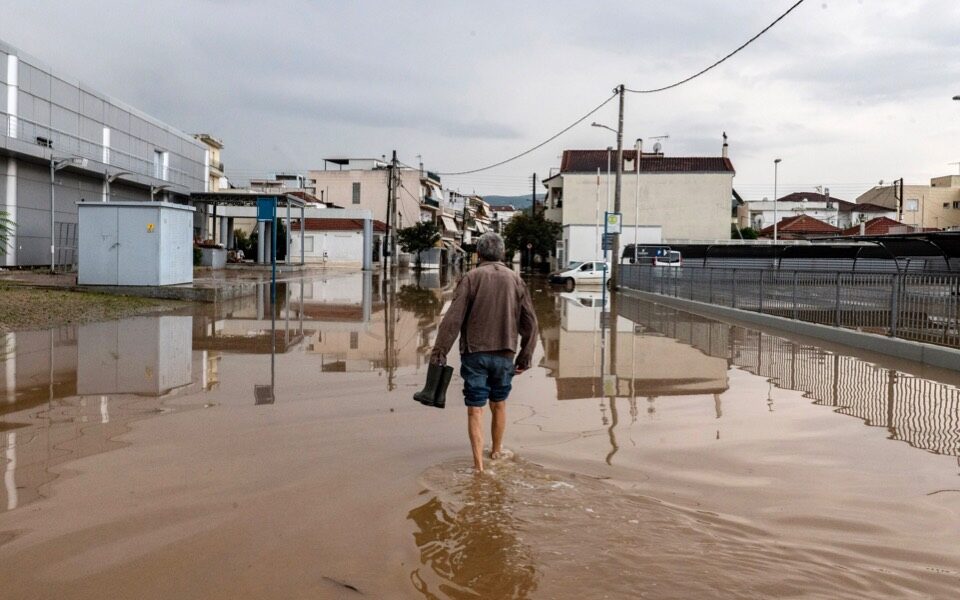What if a storm like Daniel hits Athens?

What would happen if Athens were to be hit by a big storm like Daniel that killed 16 people and flooded central Greece last month? Or even a smaller one like Elias that hit three weeks later? What if the capital were to get rainfall of 300 or 250 cubic meters per 1,000 square meters (much less than the 600-700 cubic meters that flooded Thessaly and northern Evia)? What would happen if the region of Attica, which has practically become a mass of concrete, were to be experience a cascading crisis, as was the case in the Thessaly or in other countries? This was the question on everyone’s lips after the unprecedented (but no longer rare) storms that swept through a region just 200-300 kilometers north of the capital.
Over a third of Greece’s population lives in Attica (together with those visiting, we exceed 40%), approximately half of the country’s gross domestic product is generated in this area and this is where the central structures of the state are concentrated. What if it experiences a multi-crisis – torrential rains, power grid failures, outages, street and subway flooding – and entire areas in central Athens or neighboring municipalities need to be evacuated? The question is not merely theoretical. The massive inadequacy of our infrastructure could have untold cost.
Us mere mortals don’t even want to think about it. The state, however, whose main job is risk management, cannot pretend to ignore these issues – and yet it does. The maps and emergency plans that the competent disaster protection services have sent to the respective services of the European Commission have been drawn up on the assumption that the Attica Basin is home to 1.2 million inhabitants. For that number of people, a rescue plan with today’s infrastructure would be sufficient. However, there are more than three times that many people gathered in this area. So what then?
In order to avoid a tragedy, the civil protection mechanism must leap into action in the event of any extreme (weather or other) phenomenon with more and more drastic measures to prevent the possible development of a crisis into a multi-crisis. And prevention is the crux of the matter. But prevention means modernizing, strengthening and shielding all of Attica’s critical infrastructure. This infrastructure wasn’t even adequate in the pre-climate crisis conditions – remember what has happened in the past with relatively moderate downpours in Mandra or Piraeus, on Poseidonos Avenue, or the permanently flooded schools in Menidi, Maroussi and Kallithea. They are much less adequate in climate crisis conditions, when extreme events are becoming more frequent and more intense.
Prevention means modernizing, strengthening and shielding all of Attica’s critical infrastructure. This infrastructure wasn’t even adequate in pre-climate crisis conditions
We must also launch the debate on how we will redesign and rebuild Athens – the only European capital that covered up its rivers! There are ideas and international experience, and we can and must go beyond the dreams of late Athens mayor Antonis Tritsis: Maybe – some say – we can tear down entire blocks and, by rebuilding them higher, free up space – as was done in New York, Paris and elsewhere – after first solving the much discussed legal controversies stemming from the outdated law of horizontal ownership in apartment buildings. That would be a serious reform!
Many ideas are floating around and will be put forward if a discussion like others being held around the world gets started. It has not started in Greece. It didn’t even get started as we headed into local elections earlier this month. On the contrary, things were said and done that show a perhaps dangerous carelessness, like encouragement to vote for regional governors who “belong to the party,” so that they get along with the government – such as the outgoing regional governor of Thessaly. On top of that, we also saw a pre-election transaction allowing irregular construction on small plots outside zoned districts. Is the political system incorrigible?





